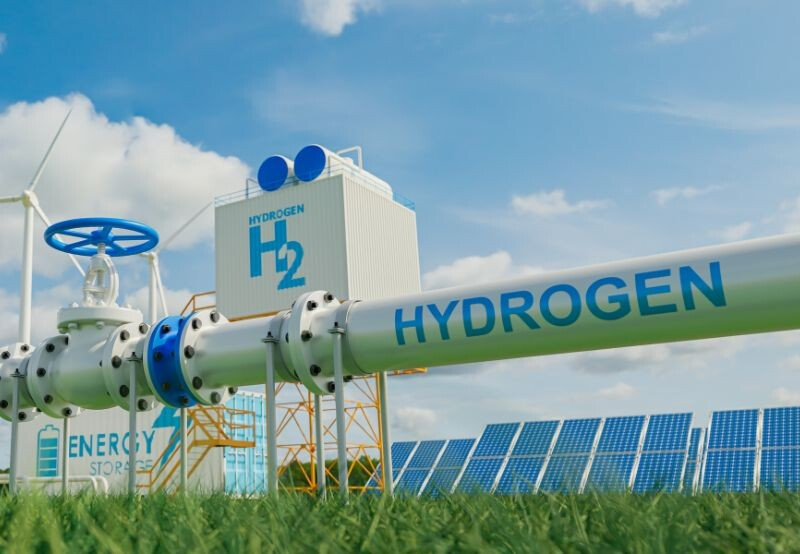
Santiago, Chile - As the world grapples with the urgent need to combat climate change and transition towards sustainable energy systems, green hydrogen, a clean energy carrier produced by electrolyzing water using renewable electricity, has emerged as a pivotal alternative to fossil fuels. This surge in global interest and investment is underscored by the Hydrogen Council's report, which identifies over 1,400 green hydrogen projects worldwide, representing a staggering total investment of $320 billion.
European nations, in particular, are strategically positioning themselves to import green hydrogen from countries possessing abundant renewable energy resources, such as Chile and South Africa. Ambitious plans are underway to construct extensive hydrogen pipeline networks across the continent, with the European Union (EU) projecting its green hydrogen imports to reach 10 million tons annually by the 2030s.
Chile envisions a future where it transitions away from fossil fuels in its energy-intensive industries, including copper mining, and establishes itself as a major exporter of green hydrogen derivatives like green ammonia and renewable methanol. Similarly, South Africa aims to capitalize on green hydrogen as an export opportunity while simultaneously decarbonizing its significant heavy industry and mining sectors. Notably, chemical giant Sasol and steelmaker ArcelorMittal are anticipated to be at the forefront of green hydrogen adoption within the nation.
However, both Chile and South Africa face a critical hurdle: the substantial financial resources required to build robust green hydrogen industries. Relying heavily on large-scale loans to finance these projects carries the significant risk of escalating national debt to unsustainable levels.
In this context, policy analysts have scrutinized the effectiveness of 'de-risking' policies intended to foster green hydrogen development in Chile and South Africa. These policies typically involve governments offering attractive and stable conditions to lure private investment and facilitating access to low-interest credit. Yet, research indicates that conventional de-risking measures, such as tax breaks and subsidies, may fall short by not addressing underlying economic and political vulnerabilities. Moreover, their singular focus on attracting investment could exacerbate fiscal challenges. These instabilities include insufficient green hydrogen infrastructure, a dearth of specialized local suppliers, and market uncertainties surrounding demand and pricing.
Consequently, the researchers advocate for Chile and South Africa to prioritize creating an enabling business environment conducive to foreign investment while simultaneously empowering local businesses and workers to actively participate in green hydrogen projects. They also underscore the necessity for nations in the Global North to shoulder a greater share of the financial risks associated with establishing green hydrogen production in these countries.
Chile's National Green Hydrogen Strategy provides a clear roadmap for industry development, outlining market opportunities and government support mechanisms. Universities are adapting their curricula to cultivate a skilled workforce for the burgeoning sector. Multilateral development banks, including the Inter-American Development Bank (IDB), the European Investment Bank (EIB), the German Development Bank (KfW), and the World Bank, have contributed to Chile's $1 billion green hydrogen fund, with the government aiming to expand it to $12.5 billion. Nevertheless, prudent fiscal management is crucial to avoid the pitfalls of excessive debt should loans to private entities default.
South Africa's Hydrogen Society Roadmap, launched in 2021, encourages the formation of green hydrogen production clusters. Existing Special Economic Zones are prime locations for these clusters, offering investors infrastructure and other benefits. Universities and educational institutions have introduced relevant training programs. The nation's Green Hydrogen Commercialisation Strategy sets ambitious production targets, including an annual export goal of one million tons by 2030. However, securing adequate financing remains a key challenge. South Africa's Just Energy Transition Investment Plan relies on a $7 billion funding package from the UK and the EU to bolster its renewable energy sector. Alarmingly, grants constitute only 4% of this sum, with the majority comprising loans that could strain South Africa's existing debt burden.
In conclusion, the transition away from fossil fuels in the Global North necessitates importing green hydrogen from nations like Chile and South Africa. Therefore, it is imperative for wealthier countries to assume a more significant portion of the risks associated with establishing green hydrogen projects in these exporting nations. This would safeguard these producers from falling into debt traps. Wealthy nations can provide stability by entering into long-term purchase agreements, guaranteeing buyers for Chile's and South Africa's green hydrogen production at predictable prices. The recent steps taken by Namibia and Germany in this direction offer a promising precedent.
This research underscores the critical need to foster the development of green hydrogen-producing and exporting nations, coupled with a more equitable sharing of international burdens. Less costly and more sustainable measures that promote the participation of local firms in green hydrogen projects, rather than solely focusing on tax breaks or low-interest loans, are essential. Such benefit-sharing will also pla
[Copyright (c) Global Economic Times. All Rights Reserved.]






























